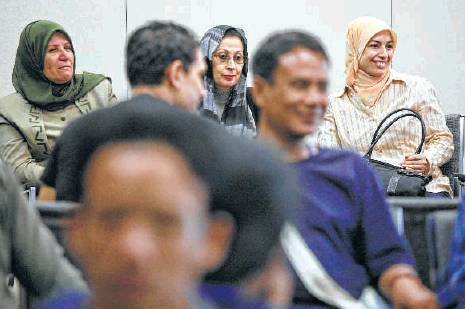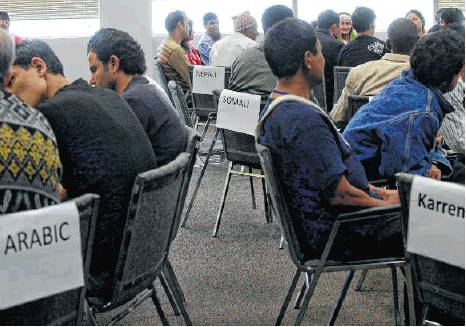S.A. knows what D.C. forgets: Immigrants help economy
By Einas Albadri FOR THE EXPRESS-NEWS
Eight years ago, when my eldest child and I arrived in San Antonio as Iraqi refugees, we had an empty apartment and one small bag of clothes. Within days, people from a nearby church were carrying heavy furniture into our home and bringing us food and other necessities. From that day on, I knew this city was home.
It was exactly the welcome we needed after my family was forced to flee our native country, due to our association with the U.S. military. Local San Antoni-ans not only helped me to rebuild my life, but they introduced me to English language education programs that have enabled me to flourish.
This support, which so many immigrants and refugees have received here, is why the Cities Index, a new report from the bipartisan nonprofit New American Economy, recently named San Antonio a highly livable city for immigrants.
The report, which measures how well cities integrate their immigrant and refugee communities, commended us for helping immigrants achieve high rates of homeownership, a low cost of living and access to both health care and education.
For me, the city’s emphasis on education has been critical. Like many immigrants and refugees, I was highly educated when I came to the United States — with a bachelor’s of law degree from Iraq — but I spoke no English. Fortunately, I was accepted into the Prepare Adults For College (PACE) program, which enabled me to take free English classes and prepare for the community-college entrance exam.
I subsequently found a job at Catholic Charities, where I received several promotions. I am now the resettlement program manager at the nonprofit RAICES, which provides legal services to underserved immigrant and refugee children and families in Texas. I’m also pursuing a masters of law degree at St. Mary’s University. My two daughters, ages 10 and 4, are thriving in school.
I love assisting fellow refugees, providing social and legal services and helping them integrate into the community. I’m happy to tell them about the ESL and college-placement classes that transformed my life, and to connect them with employers.
The refugees we work with are hired very quickly; San Antonio employers tell us that they are extremely diligent and dedicated workers. In fact, now that the federal government has reduced the number of refugees admitted into the country, employers are asking for more job applicants than we can provide. I frequently get calls from the personnel offices of the city’s hotels, hospitals and food-processing plants, asking if we have new arrivals. I have to tell them “no” much more often than I did in the past.
San Antonio employers understand what many bureaucrats in Washington seem to miss: Immigrants and refugees help the economy. Refugees are particularly good at adapting; NAE research finds that the average refugee arriving in the United States will see her income triple over the course of her working life. Thirteen percent of refugees are entrepreneurs compared with 9 percent of the U.S. born population. Here in Texas, that adds up to more than $4.6 billion in spending power from the state’s refugee population.
While San Antonio’s Cities Index score on government leadership left room for improvement, the city has recently taken a new direction in appointing its first ever immigrant liaison, Tino Gallegos, earlier this year. Since he took his post, Mr. Gallegos has been working with community stakeholders, city departments and faith leaders to ensure that San Antonio’s immigrants and refugees successfully integrate into the city. The office has hosted citizenship clinics, created resource guides, and obtained grant money to assist immigrants with legal services.
At a time when so many leaders in Washington fail to recognize the tremendous value that immigrants and refugees bring to this country, I’m glad San Antonio’s leaders are committed to working with us. And I’m grateful to the people of San Antonio, who made a single mother from a faraway country feel right at home.
Einas Albadri is the refugee resettlement program manager at RAICES.


